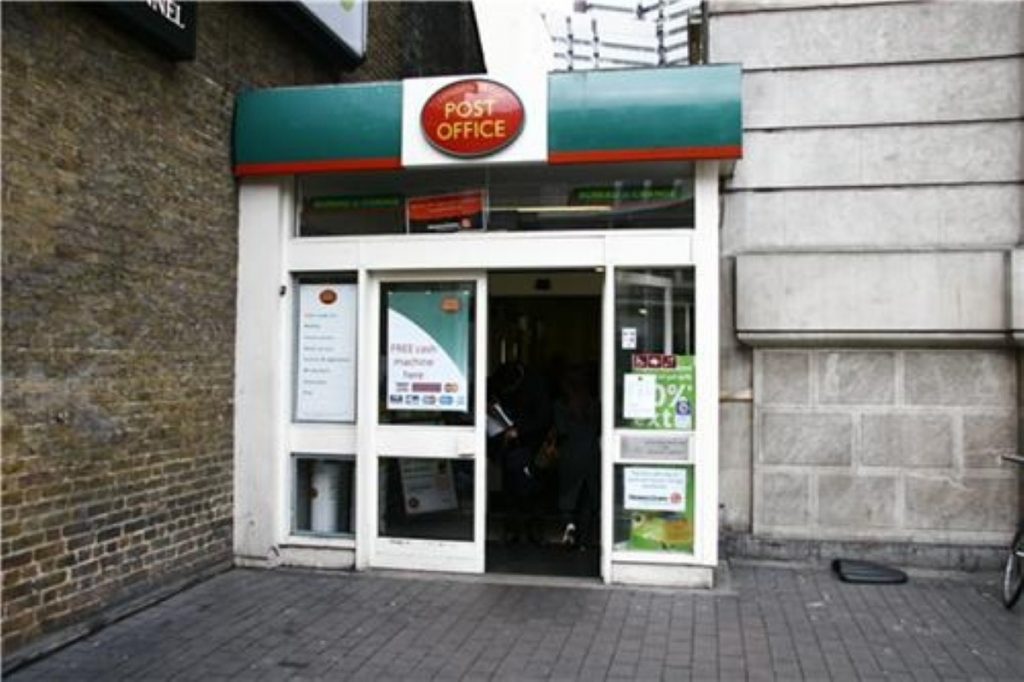Government blamed for post office decline
The government has been blamed for the fall in the number of post office branches, and the implications this has for local communities.
In an exclusive politics.co.uk feature on the restructuring of the post office, shadow trade and industry secretary Alan Duncan and Liberal Democrat trade and industry spokeswoman Susan Kramer launched stinging attacks on government policy.
More than 10,000 post office branches have closed since the 1960s, with 4,000 of these coming under the current government as ever more services bypass local branches.
“Post Office Ltd’s problems have been increased by losing government business on passports, TV licences, car tax discs and pensions and benefits,” said Ms Kramer.


“The government has clearly had a role in the network’s decline, because this lost revenue is greater than the £111 million total operating loss made by Post Office Ltd last year.”
And these changes are having a large impact on more than just finances.
“Uncertainty about the future of post offices is a cause of great concern for elderly and vulnerable people,” said Mr Duncan.
“Last year four million people signed a petition calling on the government to save post offices; despite this Alistair Darling announced that a further 2,500 would be closed over the next two years.”
But the government and even Postwatch – which looks after the interests of customers of postal services – defended the new plans.
“The government has made an investment of more than £2 billion [into the post office network] since 1999 and why we announced in December that we will continue to support the network with a further major commitment to provide £1.7 billion until 2011,” Mr Fitzpatrick said.
“People increasingly choose to access services in different ways – using direct debits to pay their bills, hole-in-the-wall machines to get cash, emails rather than letters and the telephone and internet for banking or to access information on government services.
“Government cannot ignore these changes or the fact that people simply do not use post offices as they once did. Some four million fewer customers are using their post offices each week compared to just two years ago.”
The government plans to focus on access to branches rather then their number, saying 99 per cent of the population should be within three miles of a branch, and 90 per cent within one mile.
It also recommends Post Office Ltd set up 500 “innovative outlets” for the most remote communities, including mobile branches and counters in village halls, community centres and pubs, to ensure people still have access to Post Office services.
“We cannot turn back the clock but it is important we explore every avenue in trying to maximise use of the unique post office network,” Mr Fitzpatrick said.
The government’s consultation on the new proposals ends on March 8th, with its response set to be published before the end of the month.
Lib Dem MP Michael Moore has heavily criticised this timescale, saying current plans could cause “irreversible damage to our communities” and demonstrate a “lack of regard” to views that oppose their own.
“How are the government intending to give full consideration to the many thousands of responses that they will receive to their consultation in just three weeks and one day?” he asked.
“This smacks of utter complacency. The government must listen to all the points – this must not be a fait accompli.”
Questions have also been raised over the compatibility of proposals to close post offices with the sustainable communities bill currently before parliament.
“If this bill becomes law it will empower communities and their councils to drive government policy to reverse the ongoing decline of post offices, as well as other key local services and facilities,” said Local Works, the campaign group behind the bill.
“It is inconceivable that up to 2,500 post offices would be facing possible closure if this bill had been law four years ago, when the campaign behind the bill, Local Works, started. The mechanisms and policies in the bill would have likely considerably reduced the number.”
For full versions of the articles visit: Feature on Post Office restructuring, or click on the links below:









